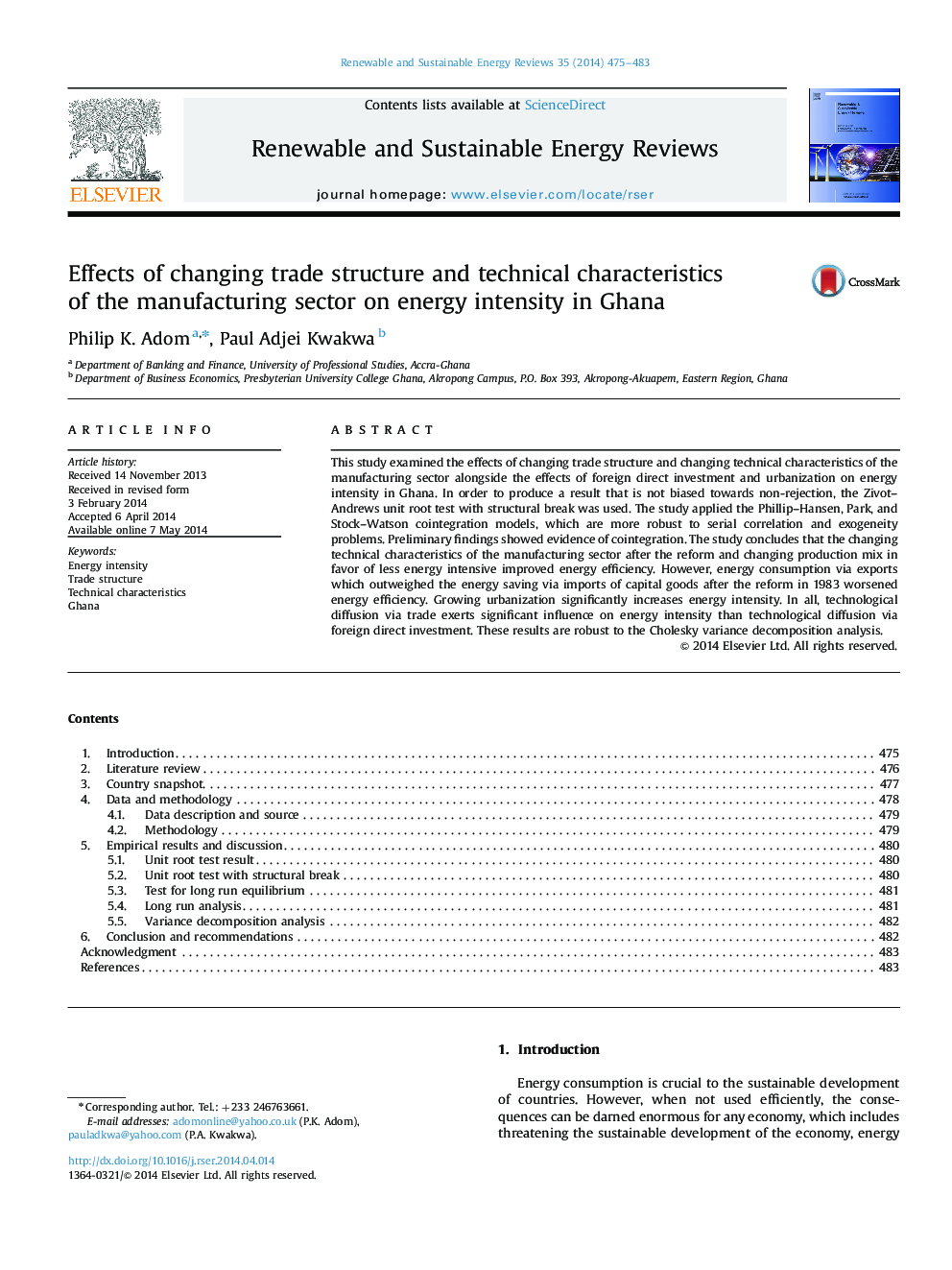| Article ID | Journal | Published Year | Pages | File Type |
|---|---|---|---|---|
| 1750402 | Renewable and Sustainable Energy Reviews | 2014 | 9 Pages |
This study examined the effects of changing trade structure and changing technical characteristics of the manufacturing sector alongside the effects of foreign direct investment and urbanization on energy intensity in Ghana. In order to produce a result that is not biased towards non-rejection, the Zivot–Andrews unit root test with structural break was used. The study applied the Phillip–Hansen, Park, and Stock–Watson cointegration models, which are more robust to serial correlation and exogeneity problems. Preliminary findings showed evidence of cointegration. The study concludes that the changing technical characteristics of the manufacturing sector after the reform and changing production mix in favor of less energy intensive improved energy efficiency. However, energy consumption via exports which outweighed the energy saving via imports of capital goods after the reform in 1983 worsened energy efficiency. Growing urbanization significantly increases energy intensity. In all, technological diffusion via trade exerts significant influence on energy intensity than technological diffusion via foreign direct investment. These results are robust to the Cholesky variance decomposition analysis.
